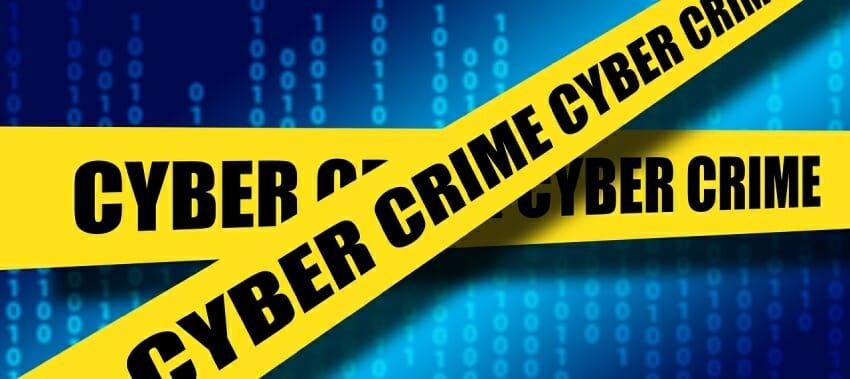Last Updated: March 22, 2024
Securing Your Accounts and Protecting Your Identity

Disclaimer: We are not qualified legal or tax professionals and are not giving advice. Always speak with a qualified professional before making any legal or financial decisions.
In an era where data breaches seem to be an almost daily occurrence, knowing how to respond quickly and effectively is crucial.
If you find yourself notified of a breach involving your personal information, don't panic. Immediate and thoughtful actions can significantly protect your identity and finances from potential misuse.
In this guide, we'll walk you through the five essential steps to take after a data breach, helping you secure your information and regain peace of mind.
Skip the article, dive into a free consultation with a debt specialist.
Should You Do a Credit Freeze or Credit Lock?
The terms credit freeze and credit locks are used interchangeably, but they are different actions. A credit freeze restricts access so that most lenders cannot see your credit report until you unfreeze it with your security PIN. If you have been a victim of identity theft or your information has been compromised, a freeze is highly recommended.
A credit lock is similar but it can be unlocked via your phone or computer with a simple phone call. Locks are generally not free and come with some sort of monthly fee. There also may be arbitration clauses that prevent you from joining a class-action lawsuit.
A freeze is free and it will prevent thieves and hackers from taking out loans and credit cards in your name.
Change Your Passwords Often
I’m sure you’ve heard this one before, and for good reason. Changing passwords regularly is considered good cybersecurity practice. If you were included in one of the many data breaches for restaurants, hotels, or websites, you should change your password immediately.
You can generate safe and difficult passwords to hack by using a free online password generator, then store your passwords on a website like LastPass or Dashlane. Make sure to change them, at the very minimum, once per year to lessen your chances of being hacked.
Should You Monitor Your Credit?
Absolutely! Credit monitoring is keeping an eye on your entire credit report. Look for credit cards you have not taken out or any strange transaction activity that doesn’t look familiar. You can get a free credit report once a year from Experian, TransUnion, and Equifax.
You can even stagger them out so you are getting one every four months, for instance, January for Equifax, May for TransUnion, and September for Equifax.
Companies like CreditKarma will monitor TransUnion and Equifax, and send you email alerts for any questionable activity.
How to Check For a Data Breach
One way to quickly check to see if you’ve been involved in a data breach is to search your email address on the haveibeenpwned.com website. If your email is found in their database, you’ll get a list of data breach activity that contains your personal information. It can be a startling revelation and you should change your password immediately!
Always Practice Cybersecurity
Cybersecurity includes simple practices that you can do yourself without the help of a tech guy. This includes not clicking any links or opening any attachments in emails. If you know the sender but the link looks suspicious, think again before clicking.
Don’t respond to text messages or emails from government agencies, alerts that your PayPal account has been suspended unless you click here immediately, or any other fishing attempts to get you to click a link.
If at all possible, use two-factor authentication when logging in to your accounts. This requires you to enter a password and confirm your identity by either logging into your phone and entering an email or text code.
Take Data Breaches Seriously
If you are notified of a data breach, keep a record of what you do in response. You should also document if you have changed your passwords, placed a credit freeze, closed a credit or debit card, etc.
Experts recommend having an email address for traveling and reservations, another for bills, and another for logging into everyday websites. By doing this, you create another layer of cover between your primary email address and your online activities.
Types of Data Breaches
Experts list five different types of data breaches. These include healthcare, financial, government, educational, and entertainment. If you have suffered one, here is a quick guide to what to do.
- Confirm that the data was breached by calling the company. An email could be a phishing scam.
- Find out what data was stolen. Identity thieves may want to impersonate you to get health care.
- Accept the company’s offers to help to get any damage repaired and protect personal information.
- Change passwords, logins, and security questions and answers
- Healthcare Data Breach additional action
- check the benefit statements from your healthcare insurance provider
- Ask your healthcare providers for a list of anyone with whom they shared protected health information (this is free once a year!)
- Contact any medical facilities that have contacted you for payment for services you didn’t receive.
- Check your Healthcare Savings Account (HSA) and Flexible Spending Account (FSA) for unexpected use of benefits.
- Regularly check your credit reports at the three major credit bureaus.
- Place a 90-day fraud alert on your credit file or a 7-year fraud alert if Social Security numbers were stolen
- Place a credit freeze on your credit report
- If you have been a victim of identity theft, file an Identity Theft Report with the Federal Trade Commission, contact Medicare or Medicaid (if applicable), and file a police report.
- Financial Data Breach additional action
- Close bank accounts and reopen a different account.
- Close credit/debit cards
- Regularly check your credit reports at the three major credit bureaus.
- Place a 90-day fraud alert on your credit file or a 7-year fraud alert if Social Security numbers were stolen
- Place a credit freeze on your credit report
- If you have been a victim of identity theft, file an Identity Theft Report with the Federal Trade Commission and file a police report.
- Government Data Breach additional action
- Regularly check your credit reports at the three major credit bureaus.
- Place a 90-day fraud alert on your credit file or a 7-year fraud alert if Social Security numbers were stolen
- Place a credit freeze on your credit report
- Contact the Internal Revenue Service (IRS), the Social Security Administration (SSA), the Federal Trade Commission (FTC), and possibly the Department of Justice.
- Monitor all accounts
- Educational Data Breach additional action
- Regularly check your credit reports at the three major credit bureaus.
- Place a 90-day fraud alert on your credit file or a 7-year fraud alert if Social Security numbers were stolen
- Place a credit freeze on your credit report
- Contact the IRS
- File a police report
- Entertainment (Video games, sports venues, etc) Data Breach additional action
- Regularly check your credit reports at the three major credit bureaus.
- Place a 90-day fraud alert on your credit file or a 7-year fraud alert if Social Security numbers were stolen
- Place a credit freeze on your credit report
- Monitor bank accounts, credit cards, etc
What types of data get breached and what's at risk
Cybercriminals target different types of sensitive personal information in data breaches, all of which pose risks:
- Email addresses - These can be used for phishing attacks to trick you into handing over passwords or other information. Also used to try gaining access to other online accounts.
- Passwords - Allow direct access to your online accounts when obtained.
- Full names, home addresses, and dates of birth - Enables identity theft, account fraud, and targeted phishing attacks.
- Credit card details - Can be used to make fraudulent purchases online and physically.
- Social Security numbers - Extremely sensitive data, enables many types of identity theft and financial fraud.
Check if you've already been compromised
You can also proactively check if your personal information has already been compromised by using tools like HaveIBeenPwned.com. This lets you search by your email address or phone number to see if your information has already been included in previous known data breaches.
Change Your Passwords Often
I'm sure you've heard this one before, and for good reason. Changing passwords regularly is considered good cybersecurity practice. If you were included in one of the many data breaches for restaurants, hotels, or websites, you should change your password immediately.
You should choose passwords that are:
- At least 12 characters long
- Contain a mix of uppercase, lowercase, numbers and symbols
- Avoid common dictionary words and personal information
To keep track of your new, more secure passwords, consider a password manager. These tools generate strong randomized passwords for each account and store them securely, so you only have to remember one master password.
Monitor for identity theft
Identity theft monitoring services like LifeLock or IdentityForce can also automatically alert you to potential fraudulent activity across your credit reports, bank statements, credit cards, and more. These services help detect fraud early before significant damage is done.
FAQs
Conclusion
Data breaches have become increasingly common, exposing the personal information of millions of consumers each year. If you receive notice that your data has been compromised in a breach, there are important steps all individuals should take in response.
Acting quickly to secure your accounts and proactively monitor for suspicious activity can help mitigate risks and potential damages from data breaches. Maintaining strong security habits like using unique passwords and enabling two-factor authentication on accounts can also better safeguard your data going forward.
No one can prevent all data breaches given how widespread they've become. However, appropriate precautions can help reduce the risks of identity theft and protect your financial accounts in case of another incident.
Pacific Debt Relief provides debt relief services to reduce overall debt for eligible individuals struggling with high credit card or unsecured debt burdens. Contact us today to learn more.
Pacific Debt, Inc.
Since you are here on the Pacific Debt website, you may be interested in more than just our educational articles. We are happy to help people learn more about finances, but if your finances are out of control and debt has taken over your life, we may be able to help.
- In business since 2002
- Settled over $300 million in debt
- Consistently named one of the best settlement companies for years
- Earned two #1 rankings for best customer service in 2020
If you have more questions, contact one of our debt specialists today. The initial consultation is free, and our experts will explain your options.
*Disclaimer: Pacific Debt Relief explicitly states that it is not a credit repair organization, and its program does not aim to improve individuals' credit scores. The information provided here is intended solely for educational purposes, aiding consumers in making informed decisions regarding credit and debt matters. The content does not constitute legal or financial advice. Pacific Debt Relief strongly advises individuals to seek the counsel of qualified professionals before undertaking any legal or financial actions.
Reduce Your Credit Card Debt By Up to Half

BBB Reviews | 4.9/5.0 Rating









 Do Not Sell My Personal Information
Do Not Sell My Personal Information